Vaporware
Ever since he had first spotted the girl in the park, Max had become drawn to the stolen simulations again. Back in the days when Kestrel would cry unless she was in motion – great air-siren shrieks that would send her mother into panicky tears – Max had spent nights bouncing her with one arm and working his computer with the other. So many bleary-eyed dawns, still fretting over the pirated files, wondering where the clinic had shipped the seven rejected zygotes and if they were any happier.
It was File 3 that concerned him now, as he sat in the kitchen with the remains of rye toast and coffee, waiting for Emma and Kestrel to come downstairs. He had come to think of this particular simulation as “Natalie,” since that had been the name he had wanted for his daughter.
Max brushed crumbs from his hands and used his fingertips to enter the day’s date and then gently turn the virtual fifteen-year-old toward him on the screen. Max’s current system balked at running the obsolete software; distortion like heat warped the image as it moved, and it winked out for a moment before reappearing. Upstairs he could hear the whine of the hair dryer, the opening and closing of drawers.
“Natalie” simulated at fifteen was just short of pretty, with Emma’s pale eyes and his own walnut hair. The file said she would be shy, like Max, but optimistic, like Emma. Organized, but lacking ambition. She was also marked as a 15% leukemia risk.
Emma, spooked by that number, had chosen File 6. Avian names had been the rage then, but they had mostly run to inoffensive Wrens, Larks, and Starlings. Just like Emma to invoke a bird of prey and then not know what to do with it.
Kestrel came downstairs so quietly that Max didn’t notice her until she was in the doorway; he almost folded his own fingers into his computer.
As usual, her sunken, sleepless eye sockets were filled in with bright violet shadow, her lashes painted canary yellow. Max had no fear that she would initiate conversation; two steel ring piercings sealed her black lips nearly shut. It was the Saturday of Labor Day weekend; she wore the erect-penis T-shirt that had gotten her suspended from school three months ago.
No sooner did Kestrel see him than she made a moue of disgust and opened the fridge, her incandescent rainbow braid swinging behind her. She grabbed a smoothie and a straw and sat as far from Max as possible at the kitchen table.
“You’re up early,” he said.
Kestrel jammed the straw between her lips and slurped, staring somewhere over Max’s shoulder. Her eyes were the same as Emma’s, textured with pale ripples like light on the bottom of a pool.
Several minutes after the silence had become unbearable, Emma glided down the stairs in an apricot sundress, her buckwheat-honey hair ruthlessly knotted at the nape of her neck. “Good morning,” she said with a smile. Silence lay like a placemat as she poured herself some coffee. “You’re not wearing that shirt today, I hope?”
It took Max a moment to realize she was talking to him. He looked down at his short-sleeved button-down; it was blue.
“It’s the weekend, precious. I’ll find you something without buttons. But I need to hurry; I’ve got two back-to-back ear sculpts at nine.”
Kestrel threw her empty bottle across the room. It came closer to Emma’s head than to the trash, bouncing off the wall onto the floor with a soft hollow sound.
Emma tensed as though she’d been shot. “Pick that up.”
Kestrel paused, then sent her chair skidding backwards and launched herself out of the kitchen, her boots heavy on the tile. Max started to rise, eyes on the abandoned bottle, but Emma made a sharp sound.
“Leave it,” she said. “If our daughter wants to eat in this kitchen again she’ll pick it up herself.”
The front door slammed, and Emma spooned sugar into her coffee.
* * *
Dew still lingered, scattering sunlight, when Max pulled into the park wearing a more appropriate weekend shirt. He got out of his car and walked to his usual bench, still claiming the left side although Kestrel hadn’t come with him in years.
The dark-haired girl he thought of as Natalie ran back and forth on the other side of the lawn with her mothers and their two Jack Russell terriers. The five of them were taking turns catching a bright blue spinner.
Today Natalie wore ragged green shorts and a cross-wrap, her hair thrown back in a ponytail. She was the right height, the right build, the right temperament, and from what he had seen of her face, it was identical. She shouldn’t be here, if the clinic had followed protocol, but perhaps her mothers had recently moved here, by coincidence or fate.
As he watched, one of the terriers tore across the grass after the spinner, darting into Natalie’s path. Unable to slow her momentum, the gangly girl stumbled over the dog and sprawled face-first on the lawn. Max leapt from the bench before stopping in embarrassment. The older of Natalie’s mothers was already there, kneeling next to her in the grass.
Natalie rolled onto her back and threw an arm over her reddened face. Peals of awkward teenage laughter skimmed on the wind toward him as the other mother tried to coax the startled terrier out from under a picnic table.
Max sat back down slowly. No one had noticed him. He pulled his computer from his back pocket and unfolded it. He prepared to once again to test the defenses of his clients at the city planning commission, not that there was much point. Emma had made more money in six months plumping lips and lengthening eyelashes than he’d made in the past three years as a white hat. His work was vanity now, a bad comb-over that fooled no one.
* * *
That night Kestrel locked her bedroom door, and Max could hear pulses of discordant music all the way from the master bathroom as he brushed his teeth. Most likely the music was a cover for having climbed out her bedroom window, but the last time Max had suggested breaking in to check on her, he and Emma had a fight that ended with Emma screaming into a pillow.
She asked him something now as she turned off the flosser.
“What?” Max cupped a hand behind his ear to suggest that it was the music, and not inattention, that had made him miss the question.
“Do your cheeks still hurt?”
He turned to the mirror to look at his sculpted face and forced a smile. “No. Your work heals fast.”
“Your dimple…” Emma’s gaze grew overcast as she stared at his reflection. “Smile again. Smile.”
Max did as she asked. He’d always had a crescent-shaped dimple in his left cheek, but now it was gone. “Huh,” he said. “I guess when everything got tightened up…”
“It’s gone,” she said, fingertips trembling at her mouth. “It’s gone.” She reached her hand up, tracing a small C-shape into his left cheek. “I’m sorry.”
“We’ll go in tomorrow, if you want, to put it back.”
“I don’t know how to do that.” Her eyes turned up to his. She was a full foot shorter than Kestrel. She brought a white-knuckled fist to her mouth and started to cry.
Max reached for her, but she flung her palms up between them and fled into the bedroom.
* * *
If the software had been newer, Max could have made File 3 smile, or even heard the timbre of her voice. With a pirated application nearly two decades old, all he had to go on was her frame, the lines of her face, the description of her temperament. More compelling than facts, however, was his gut certainty.
Even if it was true, what could he do? He had given up all rights to the rejected in vitro embryos and let them be shipped out of state to other couples. He had let Emma spin a 15 percent chance into a nightmare of chemotherapy and child-sized coffins, and they had officially designated File 3 Someone Else’s Problem, someone else’s daughter, someone else’s mornings in the park.
The front door squeaked slowly open. Kestrel. Max glanced at the clock: five thirteen a.m. He did not fold his computer right away; Kestrel would try to slip by unseen.
Only, she didn’t. She loomed in the half-light, framed by the kitchen doorway, the tension in her coltish limbs reminding him of glass and barbed wire. Her face was contorted with rage, but she wasn’t looking at him.
Max followed her gaze to the plastic smoothie bottle that still lay on the kitchen floor from yesterday. A line of ants zigzagged from its mouth to disappear under the cabinets.
“Your mother said that you can’t eat in here again until you pick it up,” Max said as gently as he could.
Her murderous-raccoon eyes turned to him now, and Max regretted having spoken. He averted his gaze to his computer screen, exiting the file and opening up his monthly budget spreadsheet. Kestrel’s footfalls approached like measured doom, and Max prayed to whatever god might be listening that for once she would just do the simple thing and pick the bottle up for Chrissakes.
There was a long silence, then a juicy crunching sound. Max looked up from his spreadsheet and saw that Kestrel had removed her lip rings and grabbed an apple from the basket on the counter. She savaged it with her teeth, smearing black lipstick on its blood-red peel. While she chewed, she stared directly at Max, blackened juice on her chin. Max remembered using a tiny plastic spoon to scrape prune puree from her face in a much smaller kitchen. He let out a weary exhale.
“I don’t want to fight with you, Kes. Just please pick it up.”
Kestrel took the five steps necessary to get within spitting distance, then launched a glob of half-chewed pulp onto the floor at his feet. Then she turned and walked out, apple in hand.
Max shuddered and lowered his eyes to his spreadsheet, overwriting his thoughts with orderly columns of figures. But the columns made him think of ants, and he finally slammed the computer shut and picked up the goddamned bottle himself.
* * *
By the time Max arrived at the park Sunday morning, Natalie and her mothers were already finished with their game. They sat at their usual picnic table with sandwiches and translucent plastic cups of what looked like lemonade. The dogs were tied up nearby, dozing in the shade. Natalie swatted at flies on one side of the table next to her younger mother, who picked uneaten potato chips intermittently off of Natalie’s plate. The older mother told a story with animated hand gestures that occasionally endangered her lemonade.
Max wondered, not for the first time, if it would be possible to hack into the clinic’s files and find out what they’d done with the other seven. If he could find the names of Natalie’s adopted parents it would help him confirm or allay his suspicions, but he frankly hadn’t managed to keep up with today’s fractal encryptions. Even the few local government offices who still hired him had become alarmingly efficient at icing him out, and it was only a matter of time before someone younger and cleverer stole the last crumbs of his bread and butter.
There was an empty space next to the older mother, and Max absently tried to imagine himself seated there. As hard as he tried, all he could see was himself working at his computer, his eyes on the screen while the other three women ate and talked and leaned on one another.
“Flores, señor?”
Max started and turned to the old woman with the armful of red roses. He shook his head, and she started to wander off toward Natalie and her family.
“Wait,” he said, and the woman turned around.
* * *
The roses didn’t look as pretty in the fluorescent glare of Emma’s waiting room. Something had eaten through one of the petals; he removed it and put it in his pocket, then watched the clock.
In twenty-three minutes, Emma emerged, crisp and white and so flawless that for a moment he forgot why he was there.
“Hello,” he said, rising.
“Please don’t come here in the middle of the day, Max,” she said. “What did you need?”
Max had bought the roses for a woman who’d touched his cheek the night before, looking for something she’d destroyed. This was someone else.
“I see, how thoughtful,” she said as though he were a pretty cat with a dead thing in his mouth. “Why don’t you take them home and put them in water? I should be home in time for dinner.”
Max paused, then walked out of the waiting room. He threw the flowers in the trash at the end of the hall.
* * *
It was spritzing rain on the morning of Labor Day. Now that Max had finally mustered his courage, he worried that Natalie and her family would not make it to the park. To make matters worse, he didn’t trust his computer to the weather, and so he was forced to sit with his hands folded on his knee, doing nothing but waiting. The rain stopped just before nine, and within fifteen minutes he heard a car door slam behind him, followed by a bark and familiar laugh.
He stood up from the bench and headed toward the parking lot. The older mother noticed him first, and gave him a polite smile.
“Good morning,” Max said to her, pausing on the way to his car.
“Do you live around here?” the woman said. “We see you all the time.”
“Been coming here every morning for years,” he said.
“We just moved here.”
“Kipper!” Natalie called suddenly. “Kipper, no!”
But the dog had slipped her grasp and bounded over. It sniffed the sole of Max’s shoe, its entire body rigid with fascination.
“I’m so sorry,” Natalie said breathlessly. She bent to pick up the dog in her arms, her eyes lowered. Shy, just like the file said. “He doesn’t mean any harm.”
“That’s okay,” said Max. He wanted to say more, but as he looked at the uneven part in her walnut-colored hair his throat closed on the words.
She looked up then, her eyes warm. Muddy green, like a stagnant pond. She ducked her head and darted away, and Max felt a wave of vertigo. Green. Not blue. Max stood for a while, trapped into making small talk with her mothers, not hearing his own words.
* * *
As soon as he returned home, he tried to work, but found himself staring at the files. All of them. He had only to enter the day’s date to see how they had grown. His daughters, raised by those who couldn’t have children of their own.
“Did you pick up that goddamned bottle?”
Max started and closed the program. Kestrel was quiet, when she wanted to be. “Yes, I did.”
“Pussy.” She dared him with her cold hollow eyes, face fixed in an ugly snarl.
Max stayed silent for a long moment, simply returning her gaze. “Come look at this,” he said at last, opening up the program again.
Kestrel paused, thrown off balance. She approached him warily, then hooked a chair with her ankle and dragged it over to his side of the table.
“What is that, porn?”
“They’re the the ZGP simulations from when you were conceived. There were eight. Mom picked yours right away but I pirated copies of them all. I’m not supposed to have them.”
“Mom picked?”
“She felt strongly, so I just—“
“Why the hell did you keep them?” Kestrel interrupted in a brittle tone. “That’s creepy.”
“I don’t know,” he said.
“Bullshit.”
“It’s hard to explain. I know they don’t belong to me. But they’re still mine.” He brought up File 5 so he didn’t have to see the familiar contempt in Kestrel’s yellow-fringed eyes.
“That one’s ugly,” she said.
“The next one’s yours.”
“I don’t care.”
The file opened up, showing a tranquil fifteen-year-old in a white shirt and shorts, spun-honey hair falling just past her shoulders. It had been a long time since Max had seen his daughter’s face without makeup, but he could recognize the lines of it in the simulation: the full lower lip, the arch of the brows. He was amazed by the accuracy: height, complexion, downy arms and lanky angularity, but the image seemed less alive than the others, a canvas awaiting paint. The others would have seemed hollow too, if he had known their footfalls and their scowls and the way they slammed a door.
Kestrel stared at the screen. Max watched her face, trying to understand what he saw there, but she remained opaque. Concentration, deep thought, or possibly fury compressed her sooty lips. When she finally spoke, Max did not recognize her voice.
“That’s who Mom wanted.”
The silence gained weight. Emma’s blue stared into Emma’s blue, but there was nothing at all of his wife in Kestrel’s stoic profile.
Max’s hand found his daughter’s braid and closed around it. He felt the frayed substance of it in his fist and gave it a gentle tug, as though ringing a bell.
Kestrel turned to him, and he saw that her eyes were bright and wet. “Quit it,” she said.
“I can mess with the code, you know,” he said, still holding her braid. “I can turn them all into monsters.” Max tugged twice: ding ding. “Want to?”
Kestrel blinked, wetting her yellow lashes. Then, like a sliver of moon in a cloud-blown sky, a crescent flickered into her left cheek and was gone.
The End
Mishell Baker is a graduate of the 2009 Clarion Science Fiction & Fantasy Writers’ Workshop, and maintains the workshop’s official blog at http://clarionfoundation.

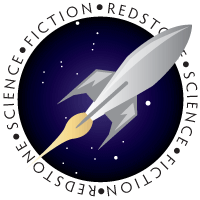
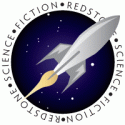




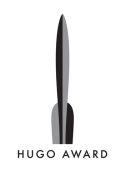
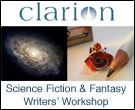



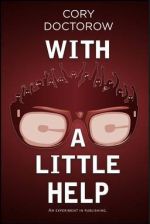
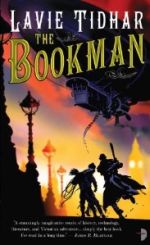



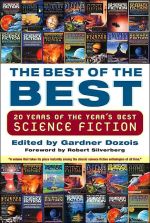
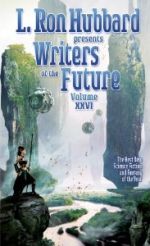

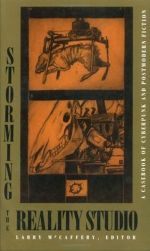



10 comments
[…] Vaporware by Mishell […]
The first paragraph lost me; I had to go back an re-read it twice more after reading following paragraphs to understand what it said. And in this, I don’t think it’s me. I’ve a fine grasp of grammar. The ending lost me, too, but in a different way. Namely, I just didn’t get it, but then maybe I’m just not well-versed enough in accepted SF short story ending twists to be sophisticated enough to “get it.”
I liked the rest. I really wanted to love this story the way I loved “Throwing Stones.”
Every piece of short fiction I’ve ever written has been an experiment of some kind, so they bear very little resemblance to one another in tone or style, for the most part. It doesn’t surprise me that there are very few people who enjoy all of it, but I’m glad you loved “Throwing Stones,” at least.
You will not like “Butterfly Effect” one bit. :-)
[…] “Vaporware” by Mishell Baker at Redstone Science […]
I really loved this story. Emotional and character elements so dominate the SF aspects that it straddles the literary genre. I hear the previous commenter on the opening paragraph. But the heavy past-perfect tense didn’t confuse me as much as suggest a sad tale. I’m also a fan of the claustrophobic (wide open) ending and was touched by ephemeral appearance of Kestrel’s left cheek’s dimple, now raised to solid motif and even symbol. Fine work this.
Thank you so much, Christopher! The current learning curve in my writing is about trying to find the balance between “ham-handed” and “inscrutable.” I am glad this story hit the sweet spot for you.
[…] 2011— Issue 15 • Stories in this issue are Vaporware by Mishell Baker, and Evoë! Evoë! by Robert Pritchard. • Michael Ray conducts […]
where has SF gone? the literary aspect in the last few years is out of control.
I really enjoyed this–and the first paragraph felt well balanced and nicely intriguing. I like a story that trusts me enough to read past some assumed knowledge in the first few lines or pages. And I really like genre work that uses character development and relationships as its engine–which this story does beautifully.
Karen – we agree wholeheartedly. She does a great job of making the world make sense to the reader without an infodump. In this case, you can trust that the author will make it all clear.